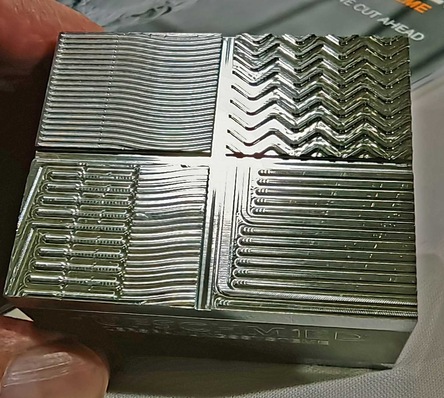This approach will reduce production cycle times and increase process reliability, both during manufacturing and throughout the operational life of the fuel cell. At the heart of the system is Delo’s Photobond SL, a sealant developed specifically for fuel cell applications. Applied in liquid form, it cures within seconds under UV light.
According to the manufacturer, the sealant is resistant to typical reference media such as sulphuric acid and deionised water—a crucial factor for the longevity and reliability of fuel cells.
Dispensing system with 50 metres per minute
For application, the Datron evo 600 dispensing system is used. Operating at speeds of up to 50 metres per minute, it ensures a consistent bead cross-section, even at start and end points. The system uses a volumetric dispensing principle and is equipped with a confocal sensor for inline measurement of the seal height. In addition, the adhesive’s fluorescence enables rapid quality control during the ongoing process.
The liquid application, according to the companies, offers maximum design flexibility for the seal contour and is suitable for automated series production. This makes the solution particularly well-suited to easing the transition from small-batch to mass production.
Stack sealing as a bottleneck in industrialisation
Julian Hopf, product manager for Energy Storage and Conversion at Delo, underscores the importance of the process: “Sealing individual fuel cells is often underestimated, yet it is a crucial step in the entire stack manufacturing process. Only with absolute tightness at this stage can the system function reliably over the long term.”
The solution will be presented at Hydrogen Technology World Expo in Hamburg from 21 to 23 October 2025. Delo and Datron will showcase their systems in halls B4 Stand H1 and B7 Stand 7A75.









